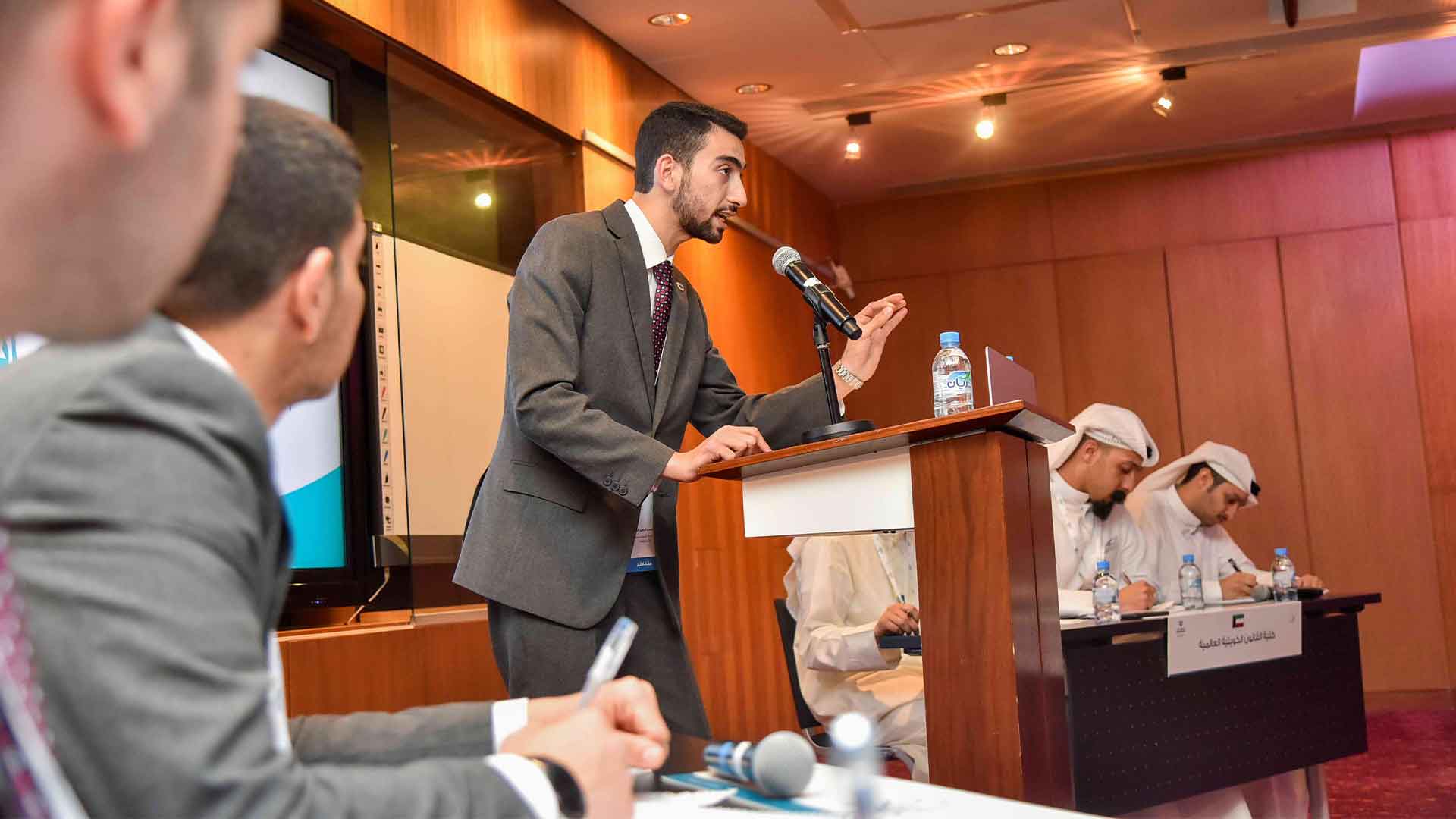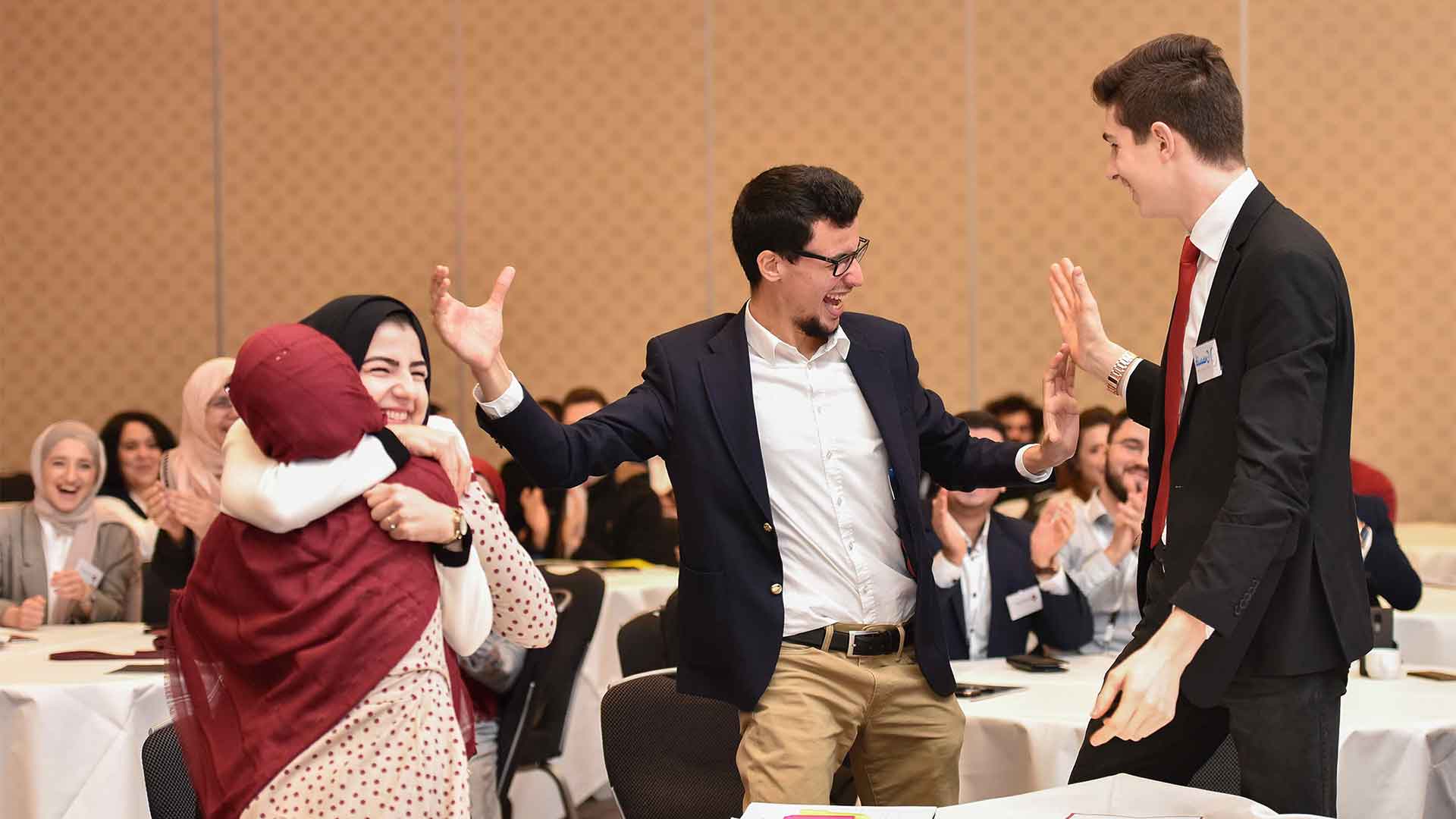
Finding Your Voice Through Debate
Hollywood depictions of debating involve passionate teenagers in dramatic competitions, but the reality is very different. While establishing debate in early years education could change everything from future employability to community engagement, debate can help everyone from school children and university students to working professionals.
In a global society where social media is dominated by polarizing views, and clickbait headlines feed division, an initiative to spread debate is giving people the critical reasoning skills to better understand the world around them.
Training a conscientious mind
QatarDebate Centre, a member of Qatar Foundation for Education, Science, and Community Development, wants to share the benefits of debate with people all over Qatar and beyond. As the national debating center, they know that debating aligns with the 5C’s of 21st Century Learning: critical thinking, communication, collaboration, creativity, and civic awareness.
Research has shown that exposure to debate training at school has a distinct and positive impact in almost all areas of study. Written and oral communication, reading comprehension, understanding new concepts, and absorbing new knowledge are all vastly improved. One study from the UK revealed that some test scores went up by six to nineteen percent in all subjects.
So far, the organization has been able to start pilot programs in the Police College in Qatar, the University of Chicago in the US and has visions of introducing it to more K-12 and university curriculums. Teachers, empowered with knowledge about introducing debate as a form of teaching and communication in the classroom, can make it more than an extracurricular activity.
Despite its competitive perception, debate is an effective tool to assist with learning languages for English and Arabic speakers. The immersive environment of a debate is a cultural experience, as well as one for learning. Tournaments, panel discussions, and forums can provide critical linguistic context and expose learners to native speakers.
But debate doesn’t just enrich a learning experience; it also helps prepare those who take part for future success – no matter their age or profession.
Influencing success for life
Oprah Winfrey, Sonia Sotomayor, Nelson Mandela, and Elizabeth Warren. They’re all key figures in entertainment and politics, sharing one key trait: each is a former debater. Whatever their career path, the skills they honed as children can be seen in their current success.
In their Future of Jobs Report 2020, the World Economic Forum listed the Top 10 skills of 2025. These included analytical thinking and innovation, critical thinking and analysis, complex problem-solving, leadership and social influence, reasoning, problem-solving, and ideation – all key traits of successful debaters. As knowledge workers overtake labor-intensive roles, soft skills such as these become more valuable and transferable beyond one specific task.

Cultivating communities
An undeniable benefit of debating is the exposure to new ideas, different perspectives, and a variety of people from diverse communities. To successfully debate, individuals must understand the topics at hand, quickly assess the broader context, and how their current philosophy applies in a reactive environment.
There aren’t many spaces where it’s safe for people to engage in this kind of dialogue since many existing avenues, such as social media platforms, rarely allow for nuance. Being given a platform, a cause, and a voice helps connect individuals to a community of like-minded people who share the same goals.
Debate helps frame topics and discussions around relevant local, regional, and global issues of our time that are translated into awareness. Youth Forums and panel discussions with diverse panels of leading experts provide access to critical knowledge on the topics that define our times, from the environment to the economy.
Through events and tournaments, a unique community of young debaters and mentors from all over the world forms. Youth advocates from Bosnia to Brunei, from Kuwait to Kyrgyzstan, from Slovenia to Sudan come together and discuss a range of issues, not just in English but also in Arabic.
The future of debate
Arabic debating has reached new heights, with Arabic language debate spreading across the world, from the University of Huddersfield and University of Leeds to the University of Utah and Western Kentucky University. QatarDebate, which has established itself as a leader in Arabic debate, dialogue, and education, sits at the center. And with a packed calendar of conferences, tournaments, and special programs, it is set to continue spreading the good word.

